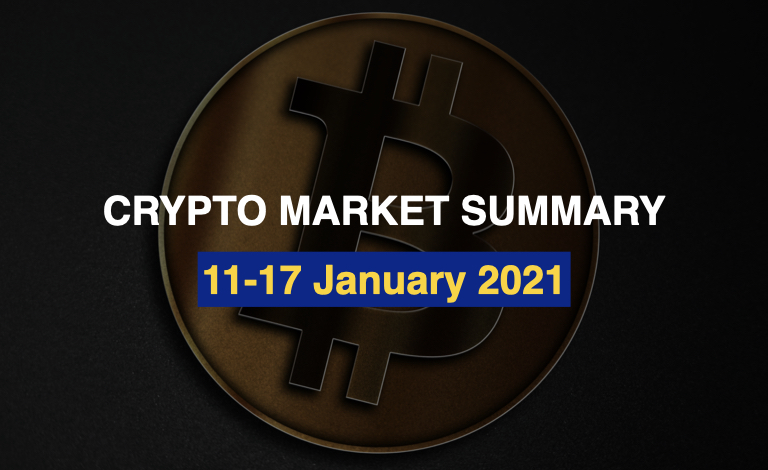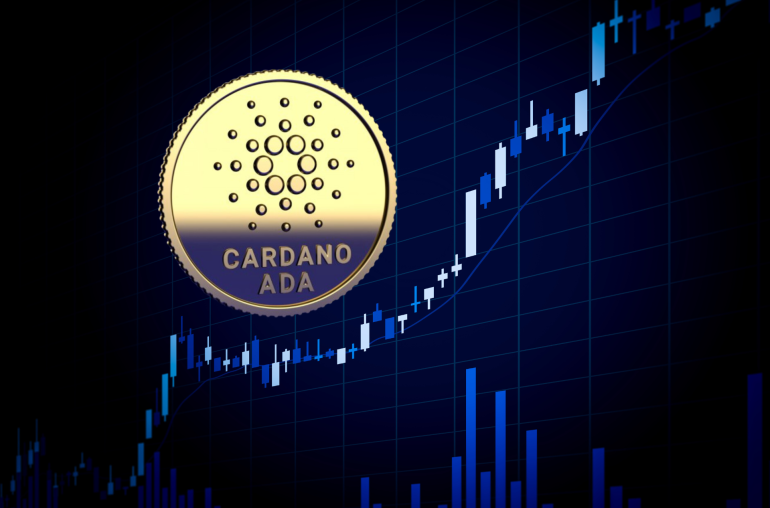
In what was one of Bitcoin’s best weeks on record, the bellwether cryptocurrency soared some 40% over the seven days to last Friday.
But as has been the case for several years now, Bitcoin trading volumes tend to drop off over the weekend and that allows for human traders to get up to their shenanigans.
While most markets are closed over the weekend, it’s on Saturday and Sunday, taking advantage of diminished trading volumes, that Bitcoin tends to get particularly volatile and susceptible to manipulation.
Take the New Year weekend for instance.
Despite coming off a 300% gain from last year, Bitcoin added as much as 14% on the Saturday of the New Year and a further 10% on the Sunday, a time when most Wall Street traders hadn’t even checked their emails, let alone switched on their trading terminals.
And when Wall Street returned to work on Monday of the new trading year, Bitcoin promptly shed as much as 14% in a single day.
While Bitcoin is not alone in trading 365 days a year, it has yet to develop established norms in terms of business hours.
For instance, the foreign currency markets have an implicit agreement to take weekends off, but Bitcoin can swung by as much as 1.5% over the weekend.
Part of the reason for these weekend-led swings and greater volatility entering the start of the week is of course the use of automated trading.
Because a human trader needs to sleep, Bitcoin trading needs to be monitored and executed automatically using trading algorithms derived from the financial markets.
The only problem with this level of automation is that the human traders who do trade over the weekends can have an outsize influence on the reaction of these trading bots in the cryptocurrency markets.
With only 2% of Bitcoin accounts controlling about 95% of the global Bitcoin supply, even relatively minor manual interventions to buy or sell Bitcoin can very easily cause cascading effects, making trading bots exacerbate the volatility already inherent in the market.
If these so-called Bitcoin Whales trade when volumes are thin (typically over the weekend), price swings detected by automated trading bots magnify these price swings by reacting and responding the way they’re programmed to.
The other issue is that Bitcoin doesn’t have a global price, not in the traditional sense.
With literally hundreds of disconnected exchanges that buy and sell Bitcoin, each cryptocurrency exchange is in effect its own island of liquidity and arbitrageurs often exploit minute differences in the price of Bitcoin between cryptocurrency exchanges for profit.
As most professional traders tend to keep to regular business hours, Bitcoin volumes have traditionally tended to taper off towards the weekend and as a nascent asset class, it will take time before volume norms are established, if ever.
Which is why investors may want to look at Bitcoin prices at the end of a weekend or even right through the weekend, with some circumspection – this is all pretty normal, leave the panicking to the weekdays.
Market Overview
With literally just days left in the Trump administration, how much damage can he cause?
U.S. House of Representatives Majority Leader Nancy Pelosi has already moved to prevent what she has termed an “unstable” Trump from accessing the nuclear launch codes (and you thought this sort of thing only happened in the movies) while House Democrats prepare articles of impeachment against President Trump for the second time in his administration.
Cut off from his social media bases, as Twitter and then Facebook banned the U.S. President from accessing his 80 million plus followers, Trump has resorted to a string of executive orders to wreak whatever carnage he can in the dying days of his failed administration.
Hunkered down in the West Wing, Trump appears to be increasingly isolated as a small, but loyal group of followers surround him, walking on eggshells.
But that hasn’t stopped the President from issuing an executive order that would make it difficult for Chinese companies that are listed on American stock exchanges or American banks to sell structured products tied to Chinese companies alleged to fund the Chinese military.
Yet if Asian markets were perturbed, it didn’t play out with Sydney’s ASX 200 (-0.58%) down on a surge in retail trading volume and the Australian dollar slipped, while Hong Kong’s Hang Seng Index (+0.61%),and Seoul’s KOSPI (+2.48%) were higher while Tokyo’s stock exchange was closed for a holiday.
The State of the Union & the Stock Market is Strong
The way global stock markets responded to the storming of the U.S. Capitol by supporters of U.S. President Donald Trump, suggests that global faith in America’s democracy, though undermined, has not been shattered.
There were no broad selloffs (in fact major indices in the U.S. set new records) nor was there a run on the U.S. dollar.
Had the shameful storming of a key government building occurred in any other country, foreign investors would have fled, taking their precious hard currency with them.
In many ways, America, not just as a country, but as an ideal, has become “too big to fail,” and investors globally are quite happy to bail the country out time and time again, from buying American assets to extending it credit.
Whether that will always be the case is less clear.
For now, the United States benefits from the TINA trade – There Is No Alternative.
With the deepest and most liquid capital markets and the freest and most dynamic economy on earth, the U.S. enjoys a status that few other contenders can rival.
An ideologically fragmented Europe and the opacity of China mean that for now at least, investors are quite happy to pay the transparent premiums for American assets, rather than the hidden ones from rival superpower contenders.
The goods news is that America has stress-tested its democracy, and while the test was ugly, the United States passed.
There is however a greater danger that the U.S. will become more fragmented than ever and coalesce around ideological lines.
An overwhelming number of Republicans, living within their self-created media bubbles and fed on a steady diet of conspiracy theories and misinformation, continue to believe that the 2020 U.S. Presidential Elections were stolen from Trump.
Whether incoming U.S. President-elect Joe Biden can unify the country around a common set of facts is less clear, let alone a common set of values.
To be sure, Trump was not the cause of the current body politic, he was the product.
Yet the storming of the U.S. Capitol building by Trump supporters, which left five people dead, also spurred on some soul searching amongst Republicans – what price are they willing to pay for political power?
Instead of strengthening their influence, the Republicans have now lost every single lever of power in Washington, the House, the Senate and the White House and surely that must be enough for them to have a “come to Jesus” moment.
The next phase could mark a more conciliatory tone where politics starts to work for the people instead of for politicians.
The proof? The end of the Trump presidency, as chaotic as it was, did not spark a second American civil war.
There may be disagreements and disappointments, but what was evident was that those willing to challenge the state of the Union were in the minority, the key now is to preserve that Union and the markets will naturally follow.
Tune Out Tech, Bet on Banks
Now that Democrats will soon be in power in Washington, the fortunes of tech companies, the stock market darlings of the pandemic, may be called into question.
As the coronavirus ravaged the global economy, investors took to betting on tech stocks that had a seemingly uncanny knack for minting money despite the worst economic conditions since the Great Depression.
But now that the world has lived with the pandemic for over a year, Democrats being sworn in this January may spur investors to take on a different appetite – for bank stocks instead.
As the coronavirus pandemic raged, rock-bottom interest rates and huge provisions for bad debts saw bank stocks plummet.
Even as markets picked up towards the final quarters of 2020, bank stocks lagged the rally in tech companies, despite posting record trading gains from their investment banking arms.
But that may be set to change as U.S. banks stocks have since led the market, with investors anticipating a surge in federal spending and banks increase lending, deal-making and trading.
Last month, the U.S. Federal Reserve allowed banks to conduct stock buybacks again, rallying bank stocks.
In the first week of 2021, the KBW Bank Index soared 8.4% versus a 1.8% rise in the S&P 500 and with three of America’s largest lenders – JPMorgan Chase (+0.11%), Citigroup (-0.98%) and Wells Fargo (-0.72%), releasing quarterly earnings on Friday, other bank stocks could also see a boost.
The other thing boosting stocks of U.S. banks is that the largest tech firms now have a big bullseye painted on their backs.
While it is admirable that Twitter (-1.61%) and Facebook (-0.44%) cut off access to U.S. President Donald Trump’s social media accounts, to prevent him from stoking more violence, that they were able to do so at the click of a button, reaffirms what many Democrats have long known – that Big Tech has concentrated too much power.
And as a new cadre of Democratic lawmakers are sworn in this month, they may develop an appetite to breakup Big Tech, with a series of antitrust actions like what Microsoft (+0.61%) had to face down in 1998.
Part of the reason that Big Tech is so profitable is because it can make sense of many disparate pieces of data provided freely by its users on different platforms, to ensure the most effective and targeted advertising (a.k.a. influence).
In the aftermath of the 2008 financial crisis, the banks spent over a decade cleaning house, and being subject to more stringent regulations – they’re not likely to be the Democrats’ first target, allowing them to continue to make profits relatively unencumbered.
But Big Tech has been deftly avoiding more stringent regulation for a long time – including avoiding the policing of content promulgated on their platforms or keeping data from different platforms in silos instead of using it to develop a holistic picture of their users.
Which is why this year might be a strong one for banks, including the prospect of higher interest rates, steeper yield curves and importantly, the release of 2020’s massive provisions for bad loans, but a particularly testy one for tech.
*Produced in partnership with leading digital assets hedge fund Novum Alpha.
About the Author



